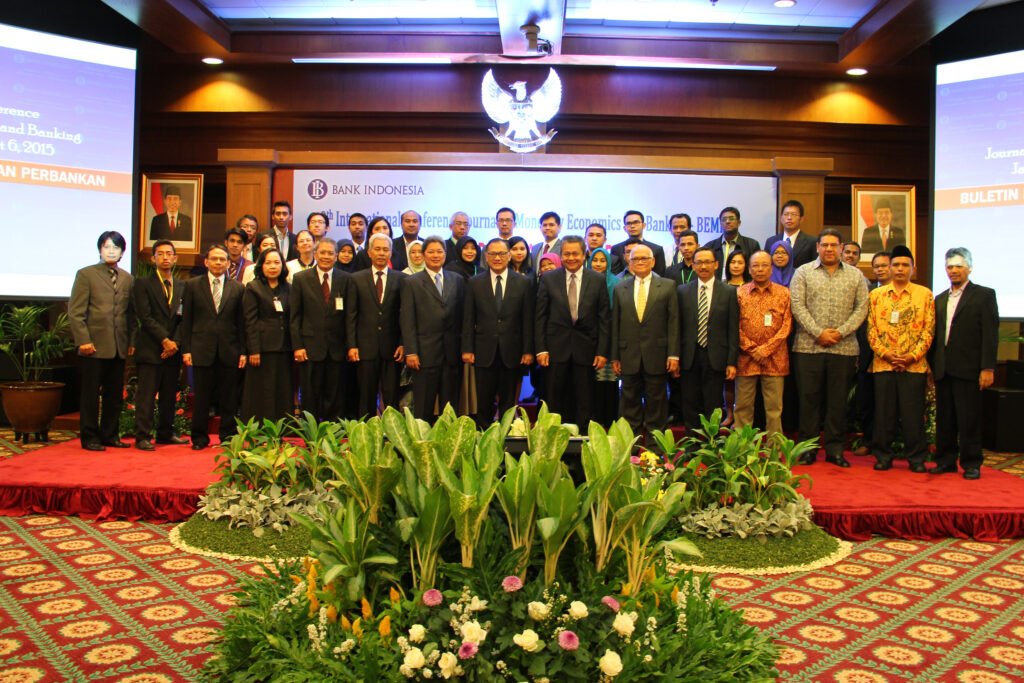In response to growing concerns about systemic risk and cross-border financial volatility, Fundamental Asia support the Central Bank of Indonesia to convene a landmark international conference titled “Financial Stability and Global Shock Transmission: Building Resilience in an Interconnected World”. Held in Jakarta and attended by delegates from more than 20 countries, the event brought together central bankers, financial regulators, economists, multilateral institutions, and private sector leaders to examine how global shocks propagate through financial systems and what structural reforms are needed to contain them.
Fundamental Asia curated the conference to reflect both the urgency and complexity of the global financial landscape. The firm designed a program that moved beyond theory, highlighting data-driven analysis, regional perspectives, and policy innovation. With a focus on actionable outcomes, the event featured plenary sessions, expert panels, case study presentations, and interactive workshops, creating a dynamic forum for exchange among decision-makers and thought leaders.
The conference opening emphasize the evolving nature of global shock transmission in a multipolar world. This was followed by a high-level panel on the unintended consequences of monetary tightening in advanced economies, with particular focus on how capital outflows and exchange rate volatility are affecting emerging markets. A session hosted by Fundamental Asia on “Policy Coordination in Fragmented Financial Systems” drew special attention for its nuanced treatment of institutional asymmetries between developed and developing economies.
Fundamental Asia’s leadership was evident not only in convening stakeholders but also in shaping the intellectual contours of the discussion. The firm launched a flagship research paper, Systemic Vulnerabilities in a Multipolar World: Risk Transmission and Resilience Strategies, during the event. The paper—produced by Fundamental Asia’s Financial Systems & Risk Advisory Unit—analyzes historical episodes of shock transmission, reviews macroprudential responses across jurisdictions, and outlines a resilience framework tailored for Southeast Asia and other vulnerable regions.

Another major highlight was the formal announcement of the Regional Financial Stability Observatory (RFSO)—a collaborative initiative spearheaded by Fundamental Asia. Designed as a knowledge and policy hub, the RFSO will monitor cross-border financial risks, provide early warning indicators, and support technical capacity building in member countries. The Observatory aims to become a strategic instrument for countries facing heightened exposure to global financial turbulence, with particular emphasis on small and mid-sized economies in Asia and the Global South.
Workshops held during the conference covered a wide array of practical topics, including stress-testing methodologies, digital asset risks, sovereign debt vulnerabilities, and regulatory cooperation. Notably, Fundamental Asia facilitated a closed-door dialogue between ASEAN central banks and South Asian regulators to explore harmonized responses to regional contagion risks—an initiative that was met with enthusiasm and support for future engagements.
The event also served as a platform to elevate underrepresented voices in global financial governance. Fundamental Asia ensured balanced representation by including scholars and practitioners from frontier markets, female financial leaders, and next-generation economists. The session titled “Voices from the Periphery: Financial Shock Transmission in Non-Systemic Economies” was one of the most anticipated discussions, shedding light on how smaller economies often bear disproportionate burdens during global disruptions yet lack adequate global representation.
Media coverage of the event was extensive, with features in major mainstream and digital medias. The conference also received formal acknowledgments from the ASEAN Secretariat and the Islamic Development Bank, both of whom expressed interest in further collaboration with Fundamental Asia. The visibility generated reinforced the firm’s growing reputation as a strategic convener and policy driver in complex financial and economic domains.

Looking forward, Fundamental Asia plans to publish a post-conference white paper summarizing key insights, policy recommendations, and next steps. Several bilateral meetings during the event have already led to requests for advisory support in macro-financial risk assessments, regulatory gap analysis, and institutional strengthening. The firm will also continue to provide technical assistance through its in-house expert teams and global knowledge network.
This international conference marks a significant milestone in Fundamental Asia’s journey to becoming a regional and global leader in economic governance and financial sector transformation. By bridging disciplines, regions, and institutional boundaries, the firm is not only shaping the discourse—but actively crafting solutions that enable resilience, foresight, and impact in a turbulent world.




